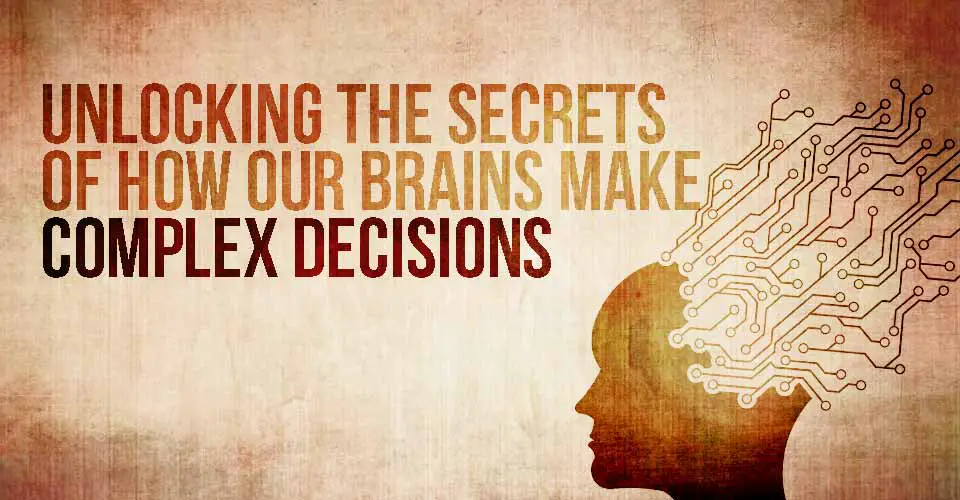
Every day we are faced with two basic types of decisions. The first is know as a habit-based decision. There are things like our morning routines or commutes to work that our brain essentially powers through without much input from us. Have you ever been half-way to work in the morning and don’t remember leaving the house? That’s a habit-based decision. Scientists have understood these types of decisions pretty well for years because, on a neurological level, they are easy to map. The other type of decision is known as a goal-based decision, and they are much more complex. researchers believe that understanding how our brains make these complex decisions could open up a whole new treatment option for people who suffer from neurological conditions like OCD and even the mental impairments associated with Parkinson’s disease.
Goal-Based Decisions versus Habit-Based Decisions
The easiest way to think of habit-based decisions is to think of them like the cache on your computer. They are very basic, repetitive decisions that our brains keep readily available to access. On a neurological level, they are easier to map and understand because of the way that our brains access them. Goal-based decisions are different because they deal with changing factors and the added complexity of experience. Take for instance that morning commute I talked about earlier that is almost automatic and throw in some heavy traffic.
Now your brain has to analyze the delay, remember potential alternate routes, and fall back on experience to get you through what is normally an automatic process. This type of decision making remains somewhat of a mystery to scientists.
Recently, researchers at the University of Cambridge set out to create a real-life mathematical model that was not only able to predict potential behavior in complex decision making, but also showed how the process works on a biological level. The study, which was published int he Journal of Neuroscience, is one of the most comprehensive of its kind into the science of the decision-making process.
According to Dr. Johannes Friedrich of Columbia University, “A goal-based decision is much more complicated from a neurological point of view because there are so many more variables – it involves exploring a branching set of possible future situations.”
Read: THIS is Your Brain on CBD
The Secret to Complex Decisions
Dr. Friedrich and his co-author, Dr. Máté Lengyel believe they have unlocked the secret into how our brains make complex decisions. The key, according to them, is how a network of neurons connects correctly to make the best decision based on the factors and previous experiences. They were able to even create a mathematical model to predict these connections in the brain. Dr. Friedrich says, “Constructing these sorts of models is difficult because the model has to plan for all possible decisions at any given point in the process, and computations have to be performed in a biologically plausible manner. But it’s an important part of figuring out how the brain works since the ability to make decisions is such a core competence for both humans and animals.”
He went on to say, “By combining planning and learning into one coherent model, we’ve made what is probably the most comprehensive model of complex decision-making to date.”
The Potential for Understanding
The real potential for understanding how our brains make complex decisions has two applications. The first is applying the mathematical algorithms that the research developed and applying them to computer technology. Dr. Lengyel says, “What I also find exciting is that figuring out how the brain may be doing it has already suggested us new algorithms that could be used in computers to solve similar tasks.” The second application for this research is a better understanding of how our brains make decisions overall. This includes neurological conditions like OCD. Having an understanding of the more complex neurological aspects of decision making can aid in understanding impaired decision making that has been linked to things like addiction and suicide attempts.


